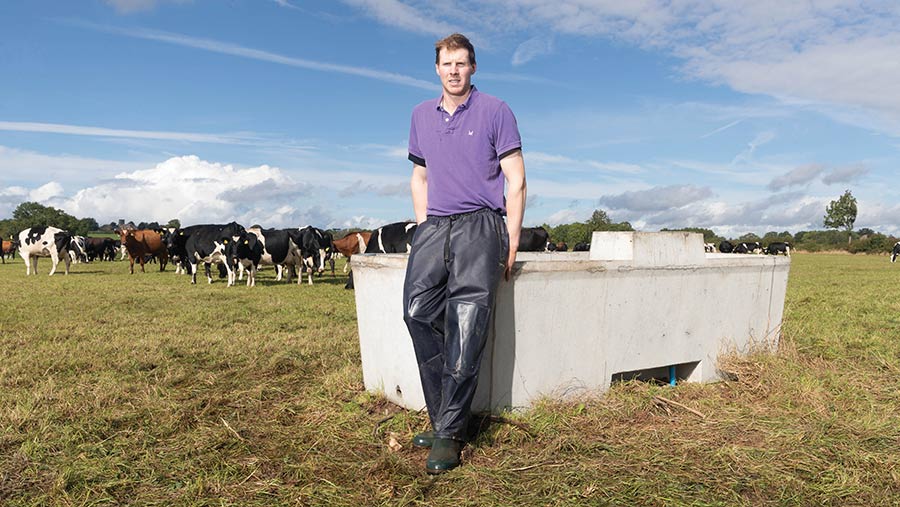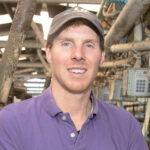Farmer Focus: Season sees clover at its N-fixing best
 © Tim Scrivener
© Tim Scrivener It’s difficult to picture how dry it was last year when walking the farm today. Everything is green and growing.
It’s certainly made life a little easier not having to feed 80% of the ration as silage in the paddock.
In a summer with good growing conditions, it is evident what a good job white clover does fixing nitrogen.
See also: Advice on tackling bloat in cattle
Those swards with a lower clover content are often those with previous compaction from poaching, or older swards that contain less prolific, smaller-leaved clover varieties.
One negative to a clover-rich sward is frothy bloat risk. We have lost a few cows in the past to bloat, and there is no definitive control method to the phenomenon because multiple factors are at play.
From experience, we’ve found it apparent when cows enter a paddock with a relatively empty rumen.
Adding oil to water troughs will reduce risk, and increasing the rate of feed in the parlour will ensure some rumen fill before grazing.
As we’re feeding very little in the parlour at this stage of lactation, the key prevention strategy for us is to not to over-allocate grazing.
In high-risk paddocks, we would set a small break to allow rumen fill and three or so hours later let them onto the remainder of the paddock.
With calving fast approaching, it’s the time of year when the routine is quieter, with 350 cows dried off.
We’ve been preparing to make the imminent hectic period a little easier, and reviewing standard operating procedures and team training needs.
With improved fertility over the past year, there will be 500 calvings before the end of September.
This means it’s important we have the facilities ready to go, as the first six weeks will be more intense than in previous years.
We have re-advertised for a head herdsperson, having had a relatively small pool of applicants and only a handful of appropriate candidates.
Recruitment continues to be an issue across the industry and it’s unlikely to get easier. Luckily, we have invested in automation where possible to make management decisions easier and reduce labour demand.
That said, we have a good team, with young, enthusiastic students, which is promising. It’s essential we invest in the future of our industry.

